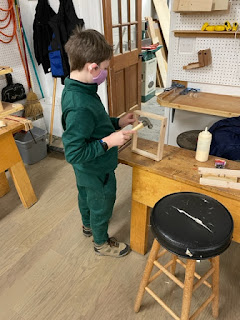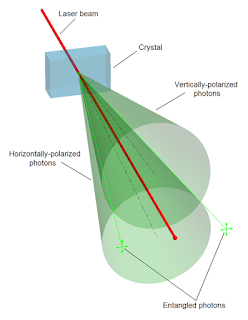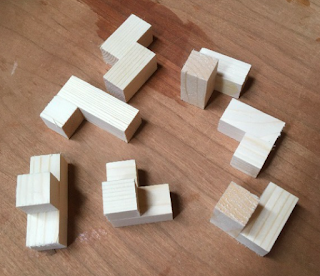Physicists have noted and proven that if you take two particles, introduce them to each other and then thrust them apart to the furthest reaches of the universe, what is done to one is noted within the behavior of the other. The phenomenon is called quantum entanglement and may someday help us to understand higher levels of human interconnectedness.
Friedrich Froebel had been born the son of a Lutheran minister and his mother had died at a very early age. He was a bright child and cherished by his father's second wife until her own children came along. At that point he was left to fend for himself to obtain the emotional support every child needs. At an early he was apprenticed to an uncle, a forester, and it was there in the Thuringen forest that Froebel discovered a love of botany and the seeds were planted for what would become Kindergarten, a garden of children. In witnessing the wonders of nature he likely gained a first glimpse of the interconnectedness of all things.
In college Froebel had planned to become an architect but had an opportunity to work as an assistant to Christian Samuel Weiss, a leading authority on minerals and crystallography. Helping to organize the collection of minerals for Dr. Weiss, Froebel was to witness how things of great beauty grow from patterns inherent within. Should children, given the right circumstances, not grow in the same manner? You see the impact of his work with Dr. Weiss in Froebel's development of his gifts, one through 6 which were designed to lead the child into an exploration of the structure of the universe and through association with other Kindergarten activities, understand their place within it.
Many of us have seen, even before the internet and before facebook, evidence of our interconnectedness. Living in a small town and knowing a few folks, I'll think of someone as I drive through town and then see them coming in the next car. This is not always the case but happens often enough to make me wonder. Under such circumstances, we don't need facebook to remind us that we are a part of one another and that what we do reflects who we are and may be guided by unseen patterns within.
And so, what are we to make of all this? Froebel had suggested three uses for the Froebel gifts. One was to use blocks to create what he called forms of knowledge. Forms of knowledge were used to represent numbers and mathematical constructs important to the growth of the child. Another use was to create forms of beauty. These were to develop the child's design sense through representations of symmetry and rhythm. The third use was to create what Froebel referred to as forms of life, representing the objects to be found in everyday life, thus connecting with the child's natural inclination to serve others by making useful things. So you take these three things, development of intellect, artistic sense, and inclination to serve and you have the formula for growth.
It's ironic that Froebel did not become an architect of buildings, but instead an architect for a system of education that allowed the child to grow from within, as a crystal or flower might grow. In his autobiography Frank Lloyd Wright said about his play with Froebel blocks and their impact, "I can still feel those maple blocks in my hands to this day."
The illustration from wikipedia shows an experiment demonstrating quantum entanglement.
If you are reading this, we are entangled.
Make, fix and create...











